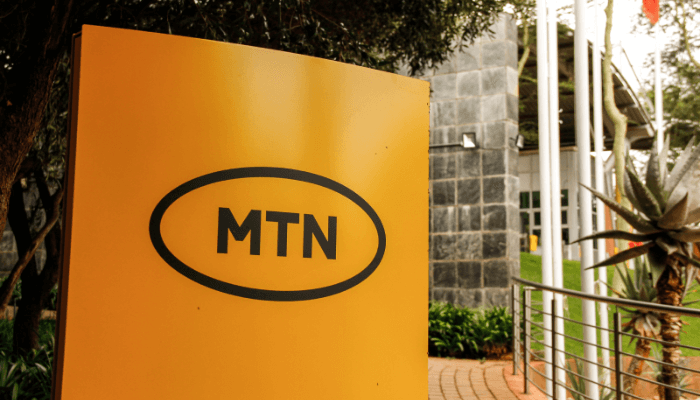Besides one startup, Namibia’s startup ecosystem is not widely known. Can addressing its challenges unleash its opportunities?
In the last few years, numerous innovative startups have sprung up in Namibia. There are LEFA and Intercity both of which drove mobility in the southern African nation as well as Tutors Hub which pioneered edtech. And there is PayToday and PayPulse, which introduced digital payments to Namibia as well as Macquire Medical which pioneered telemedicine in the country. However, these and many more startups in the country, despite their innovations, have not been able to position the country’s ecosystem as a destination for investment. Startups in Namibia still struggle with raising venture capital, an important component of building scalable and impactful technology companies. From conversations with various ecosystem stakeholders, numerous ecosystem challenges contribute to this shortfall.
According to data by Statista, in 2022, only three Namibian startups raised venture funding, totalling $15.21 million. The majority of this funding—$15 million to be precise—went to logistics startup JABU. JABU Logistics, which has raised over $18 million, according to Crunchbase and is present in three countries, is an outlier in Namibia. Founded in 2020 by David Akinin, the startup enables shops and bars to place orders digitally to stock up their shops. It currently operates in Zambia and South Africa and was part of Y Combinator’s Summer 2021 batch. In May 2022, it raised $15 million in funding, led by Tiger Global. “There is enough adoption of technology in the country to achieve scale. Namibia is definitely a small country, [but] it has a lot of opportunities,” said Kevin Hassan Abadi, partner and director of products at JABU.
Challenges facing Namibia’s quest to be a VC destination
Namibia has a small and sparsely distributed population of 2.5 million people and extreme economic inequality only surpassed by South Africa. It also grapples with multidimensional poverty, a small financial sector, and an almost non-existent local venture capital industry. Even StartUp Namibia, which was set up by the German development agency GIZ to support the country’s fledgling ecosystem, shut its doors earlier this year. An amalgamation of these factors contributes to a landscape which makes building a venture scalable company challenging.
[ad]
However, according to some investment professionals in the country, the issue is not a lack of capital in the country but, rather, a disconnect between the requirements of capital providers and the needs of startups. Jesaya Hano Oshike is a seasoned investment professional with over 10 years’ experience in the field. He is co-founder of Windhoek-based Basecamp Business Incubator and was also one of the founding members of the Namibia Business Angel Network.
“Even though there is dry powder in the market, investors argue that startups are not investable because they are way too risky in the early stages,” Oshike told TechCabal. “But the reason startups are not investable is because no one is willing to give them funds for them to actually build out their businesses.”
To address this chicken-and-egg conundrum, Oshike believes that business development via entities like the Basecamp Business Incubator is vital in accelerating the process of business model validation and investment readiness for startups. This point is further reinforced by Meike Neitz, co-founder of the business development community “It Takes A Village”.
“There is a lack of support in the form of a business-friendly environment for startups to mature beyond their first two years of existence,” Neitz told TechCabal. “A lot of effort to that end at the moment is spearheaded by individuals as well as private enterprises, which is nowhere near enough. ”Although there have been government initiatives such as the Namibia Investment Promotion Board in that regard, Netz believes there is still a lot of work to do. “Big institutions like banks are willing to sponsor startup-related events but they are not willing to be more active in availing funds,” she added. “Also, I believe that corporates should be more willing to adopt the solutions of startups. That would go a long way in helping them get traction and validating themselves to investors.”
According to Fillemon Nangolo, founder of Tololi Market, a B2B logistics startup which enables retailers to procure produce from farmers, the reputation of digital solutions also contributes to stunting the growth of startups, which in turn shuns investors away. During the COVID-19 lockdowns, e-commerce and logistics startups boomed in the country. However, amongst the legitimate businesses, there were also bad actors who scammed consumers. As reported in TransUnion, some faux e-commerce websites scammed consumers into buying fake or non-existent products. Others scammed consumers into downloading phishing software.
“Namibia doesn’t have the biggest population, so as soon as one person gets scammed online, word of mouth spreads very quickly and suddenly 100 people do not want to use online platforms because of that [person’s] experience,” Nangolo told TechCabal. Nangolo’s Tololi Market is currently in the market to raise seed capital of $720,000 to scale its operations, and recently pitched to CcHub Namibia.
Another challenge reiterated by founders that TechCabal spoke to is a need for more technical talent in the country. With only two public tertiary education institutions, startups in the country are not exactly spoilt for choice when it comes to sourcing talent. Additionally, Namibia’s stringent immigration laws make it difficult for startups to source talent from abroad.
“Namibia makes almost the biggest investment in education on the continent as a percentage of GDP, but if you look at the ICT graduates specifically, we produce the lowest number of graduates,” Anicia Peters, CEO of the National Commission on Research, Science and Technology, told TechCabal. “So there is a shortage of skills to advance the country’s digitalisation ambitions.”
Peters chaired the task force set up by Namibia’s president Hage Gottfried Geingob in 2022 to investigate impediments to the country’s Fourth Industrial Revolution ambitions. To address the skills shortage challenge, Peters and her team recommended [pdf] that the country invest more into upskilling graduates to match modern requirements, doubling down on homegrown research and development efforts, and establishing a national artificial intelligence institute.
The future of Namibia’s startup ecosystem
In June, Bosun Tijani, CEO of Nigeria-headquartered CcHub, and now Nigeria’s minister of communications, innovation and digital economy, officially opened the accelerator’s Namibia office. In his remarks, he stated that accelerating the growth of the country’s startup ecosystem was the main motivating factor for the decision to set up operations in the country. Earlier in the year, global ride-hailing platform Yango also launched in the country, with the company’s general manager for Africa, Adeniyi Adebayo, stating, “We see great potential in the Namibian market, as the country has a growing and diversified economy—and there is a high demand for a modern ride-hailing service.”
The fact that pan-African and global technology entities such as CcHub, Yango and Paratus have made inroads into the southern African nation is an indication of the positive direction it is headed. The country has a relatively high literacy rate and internet penetration, good infrastructure, and stable governance, factors which can contribute to significant ecosystem growth, which in turn can help address its pressing socio-economic issues. Additionally, the country has numerous industries ripe for technological disruption. These include an expansive tourism sector, a public health system which can do with the incorporation of technology, a fledgling energy sector as well as a small but promising financial services sector.
“There are a lot of forward-thinking technology entrepreneurs in Namibia who have the potential to build scalable enterprises which address the country’s pain points,” Oshike said. “And there are a lot of those pain points which can be thought of as opportunities,” he added.
However, potential does not mean anything if it’s not groomed and developed. Ecosystem challenges such as macroeconomic deficiencies, lack of technical talent, and stringent regulatory requirements would have to be addressed in order to create an attractive VC ecosystem. The good news is that, from conversations with ecosystem players, including founders, investors, government representatives, and business development advocates, there seems to be a collective effort to address these concerns.





















